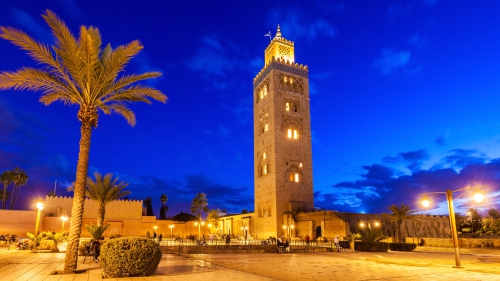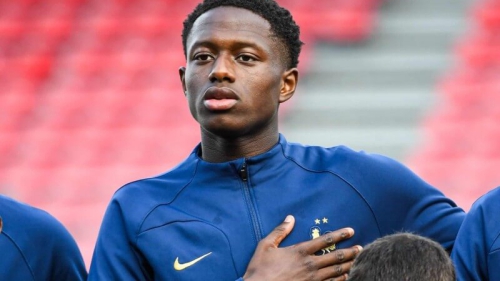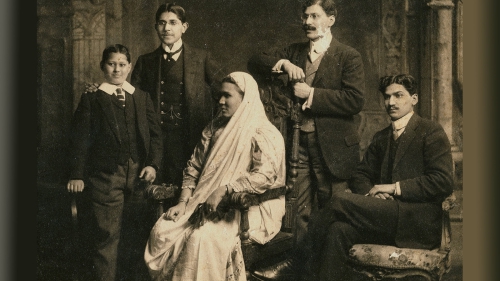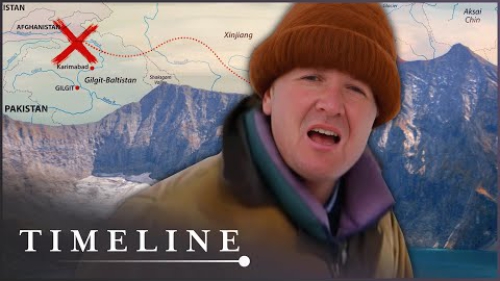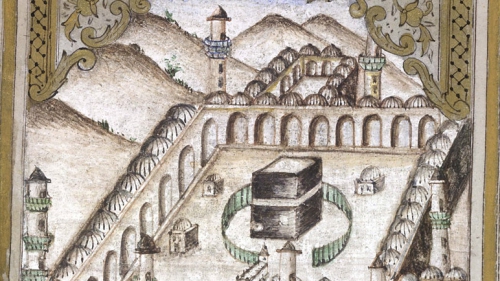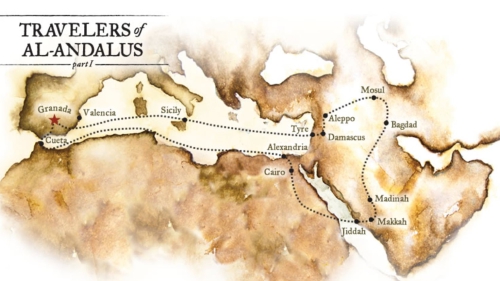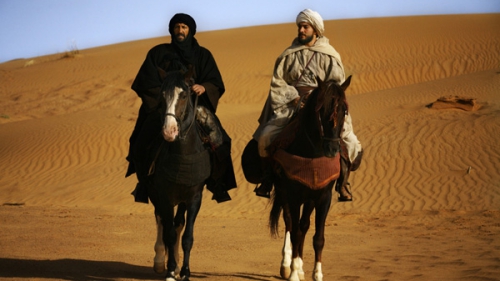Marseille: Where Worlds Adjoin
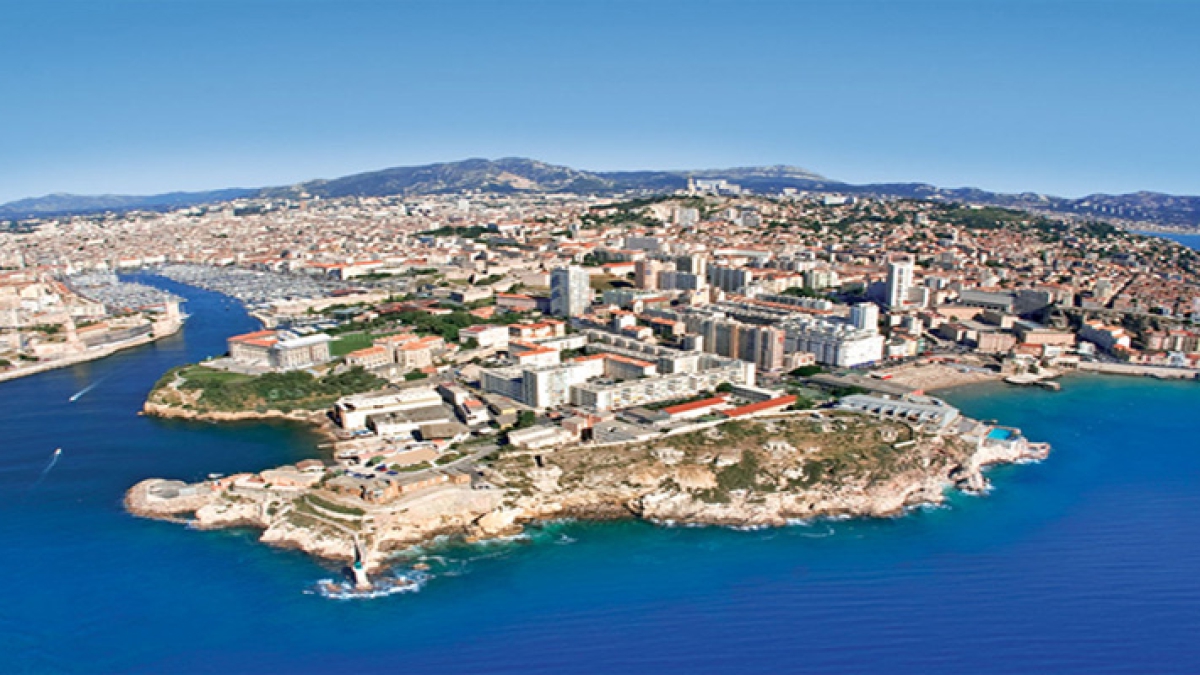
"Come on, hurry up!" I heard a woman call in Arabic as I disembarked from a taxi downtown. A well-dressed lady wearing a head-scarf was urging her two children on, probably to school. Across the street I spotted a Restaurant Oriental announcing Tunisian specialties-couscous, tajine, grillades, salades. On the opposite corner was the Syrian Air office. A tall black woman in a long African dress strode majestically across the street, ignoring cars. Rolling leisurely past between me and the airline office were three bicycle-mounted police officers, two men and a woman, unarmed.
Europe? Yes, sort of. This is Marseille, le Vieux Port ("the Old Port"), the pulsating heart of the oldest city in France and Europe's third largest port, after Amsterdam and Rotterdam.
A block away, a small crowd of tourists stands around a brass plaque set into the Old Port's quay. "Here in 600 BC Greek sailors came ashore from Phocea, a Greek city of Asia Minor. They founded Marseille, from which civilization spread throughout the western world."
The leader of the Greeks was a certain Protis, and the trend of Mediterranean immigration to Marseille that began with him has not stopped since. The Ligurian tribe that inhabited the area set a precedent for welcome, according to legend, by allowing the daughter of the Ligurian king to marry Protis. Soon a small town, Massalia, grew up here and traded in oil, wine, bronze objects, arms, salt, slaves and ceramics. In time, the power and influence of the Massalians reached north into the Rhone Valley and west to the Iberian Peninsula and, later, as far south as Senegal and farther north to Brittany. The Massalians even explored other northern coasts as far as Iceland.
Run as a republic, the city was reputed for wise laws, and it was known as a center of culture. Even when it was occupied by Rome in the first century BC, and later when it came under the sway of other powers, it never lost its independent, sometimes rebellious, spirit, and it usually enjoyed some degree of autonomy. In 1800 it formally aligned-reluctantly-with France.
Ever a place of merchants, traders and seamen, it was Marseille that established France's first chamber of commerce in 1599. Almost as important: The first sidewalk cafe opened in Marseille in the 17th century. (Parisian ones came later.)
But back to the bronze plaque: All around it there was the great buzz of the popular morning fish market. Although the Old Port now harbors mostly pleasure craft and ferries, small, tubby fishing boats still chug in every morning around nine to unload colorful catches. Chefs searching for the multiple ingredients of the world-famous, complex bouillabaisse marseillaise mingle with housewives and curious tourists.
Lining the other quays of the Old Port are well-kept five- or six-story modern buildings, every one with an outdoor cafe or restaurant putting the ground floor to commercial, social and esthetic use. They range from fancy seafood and bouillabaisse restaurants to pizzerias and ice-cream parlors.
As the day wears on to evening, the cafes' population gradually increases. Business is done here, papers are read, friends met; the nearby noise of traffic seems to bother no one, and the brilliant Mediterranean light reflects off the water, bathing the port in light from above and below.
| In a city fueled by a rich cultural blend of new foods, languages and religions, "we don't integrate ourselves; we adjoin each other. The word foreigner is totally foreign. |
There is, I believe, no better place in the world to have a cup of coffee. I sat down at La Samaritaine, a local favorite on the quay. I studied the people around me: southern French, Arab, Italian, Corsican-and noticeably few from the northern half of France. It is this human mixing, thanks to what Protis started, that makes Marseille unlike any other French city: It is truly a city of the south.
Everything seemed gentle and friendly, and I realized I felt at home here, comfortable, safe, enjoying life. What had happened to that stereotype of Marseille as a rough-and-tumble city that was the French version of Al Capone's gangland Chicago?
"Marseille has been cleaned up and no longer has this image of insecurity. We have not had serious crime in a long time. The municipal police are not even armed," says Dominique Vlasto, president of the Marseille Tourism Office and a member of the European Parliament. "What we have mostly are problems of what we call petite insecurite-the grabbing of a handbag or stealing something out of a car. By worldwide standards we don't have great problems."
And gone are the days, she says, when the activity of the port was driven by colonial commerce from Indochina, Algeria, Tunisia, Morocco, Ivory Coast and Senegal. "There used to be great hotels all around the port area," she says. This is, however, coming back, thanks in great part to cruise ships, conventions and tourism. In the last decade, the city has expanded and improved its beaches and restored old quarters of the city. Since 2001, France's bullet train, the train grande vitesse (TGV), has put Marseille within three hours of Paris-less than the time the journey would take by air, if you count pre-departure waiting time.
"This place used to be weather-beaten sea dogs and gangsters," says free-lance writer Nick Constance. "Now it's truly cosmopolitan. Of course, there are still problems, but the multi-ethnicity, once a liability, is now being seen as a rich vein of artistic discovery and business opportunity. It's a place of great liberality where, once you make the effort, the locals are enthusiastically accommodating."
All this, along with the concurrent two-year-old boom in cheap European airfares, means that people from cooler northern climes are not only vacationing and attending conventions in Marseille, but are also buying secondary residences, pushing real estate values upward by some 30 percent.
Being "back on the map" in such a positive way makes the city feel as if someone had turned on bright lights. Everything in Marseille today seems interesting, and walking is the best way to explore the city.
A good place to start, tourist guide Christine Fournier told me, is the site of the original Massalia, which rises above the Old Port onto a hill called Les Moulins ("The Mills"), where 500 years ago there were 16 windmills. As is true in many Mediterranean cities, says Fournier, wherever the Marseillais today try to build something new, they often run into something old. Builders of a parking lot just above the Old Port recently found evidence of the Roman-era port and realized that theirs had been a large and important city in Roman times as well. So they made a museum out of their discovery: the Museum of the Roman Docks.
A few steps up the hill from the museum, there is a shop selling traditional Marseille soap. There used to be 80 soap factories in Marseille, but now only two are left. This too, says Fournier, may be changing, for Marseille is also a city rediscovering its roots.
"We know that soap made from olive oil originated in the Middle East a long time ago," she says. "It is very good for the skin. For washing clothes it's cheap and will last a very long time. The real thing is made from 72 percent vegetable oils-mostly olive oil-water and soda."
Winding our way up to the top of the hill, we find the neighborhood today called Le Panier ("The Basket"), traditionally a home for immigrants. In its narrow streets and lanes, interrupted occasionally by stairs, we enjoy a calm entirely different from the buzz of the Old Port. The three- and four-story apartments lining the streets are painted in natural Provencal colors-mostly yellows and oranges-some with pale blue shutters and multi-colored laundry lines stretching out the windows. At the top of the hill is Place des Moulins, a little square that is an amazing, compact melting-pot of humanity: Italians, Corsicans, Muslim Cormoreans, North Africans, Vietnamese, Catalans, Armenians and West Indians, to mention a few. It is a wonderful place to people-watch.
As much as Le Panier invites lingering, I was curious to see the concentrations of Muslims in the city, for nearly a quarter of the population-some 200,000 out of 800,000-is officially Muslim, and the true numbers may well be higher. We returned to the Old Port and turned right a few hundred meters up the city's main thoroughfare.
 |
At once we found ourselves in another urban world of narrow streets and lanes which might as well have been in Marrakech or Cairo. North African Arabic mixed with French, and many men wore traditional jellabas, or gowns. The women often seemed to be running small businesses.
One of the busiest markets here is the Marche des Capucins ("The Capuchin Market"), where beautifully fresh fruit and vegetables, as well as spices from all over the world, sell at reasonable prices, all amid cafes with sidewalk tables. Just up the street there is a small, friendly Muslim bookshop, and around the corner is a mosque, really just a modest prayer hall, one of 51 in the city.
Despite the firm and vibrant Muslim presence, there are no old Muslim monuments, no great mosques nor ruins of such as one finds in Spain. In fact, there is hardly any physical trace of Muslim history here. I had read that Marseille has always been a practical, unsentimental city, but I wanted to know more.
Soheib Bencheikh is an Algerian cleric, a young intellectual I had read about as a man of peace and a promising leader of European Muslims; some call him "the Grand Mufti of Marseilles," though there is no such official position. Why, I ask him, is the history of Muslims in Marseille so blank?
Early on, he explains, the first Muslims to come to Marseille were "ambassadors, or traders, or merchants. They did not come here to settle. That was unthinkable. In the Middle Ages, Muslims who came here had a choice we call 'B or B'-'baptism or the boat.' The first group to have the right to a Muslim place of prayer was Turkish merchants at the time of the French Revolution. Then Napoleon, not yet emperor, brought in through Marseille a corps of Egyptian soldiers called the Mamluks, like a foreign legion." Around 1906, more Turkish and Arab merchants started to appear.
During World War I, France recruited some 200,000 Moroccan and another 200,000 Algerian soldiers, and although all passed through Marseille, "the survivors didn't stay in France," Bencheikh says. The first "durable migration" came with economic growth after the war. The greatest migrations took place in the three decades after World War II, a time Bencheikh calls "the glorious 30 years." "Even after the French had lost their whole colonial empire, France remained economically very strong. During the 1950's, 1960's and the beginning of the 1970's, there was an organized voluntary immigration. That was the beginning of the massive presence of Islam here." The greatest shifts in the population came in the 1960's, when tens of thousands of North Africans, as well as Algerian-born French, flooded into the "mother" country as France lost control of Tunisia, Morocco and Algeria.
Today, Bencheikh continues, in this city fueled by a rich cultural blend of new foods, languages and religions, "we don't integrate ourselves; we adjoin each other. The word foreigner is totally foreign. There is a total tolerance here. I have never seen such a melange as here: Jews, Arabs, Christians, Armenians, turbans, jellabas. The point is that nobody really bothers anyone else."
Despite this, says Salah Ezziddin Bariki, an Algerian-born city councilor who fights juvenile delinquency, economic opportunity is not always spread around equally. "We need some positive discrimination. There are about 3000 Arabs in the postal service, that's all. And there are some in the security business, the restaurant industry and of course in those parts of general commerce that are directed toward our own community and toward trade with North Africa," he says.
On the cultural side, Marseille's star is rising nonetheless. The couscous of North Africa has evolved into a national French dish, eaten by everyone-even more than bouillabaisse.
(It is much cheaper and infinitely easier to make.) Marseille's radio stations offer as much rai, Algeria's rock-pop, as anything else, and Marseille is a hotbed of Maghreb-French hip-hop blends. In sports, the world's top soccer player, Zinedine Zidane-known as "Zizou" to his fans-is from Marseille, the son of Algerian parents.
To keep its cultural blending and adjoining strong, Marseille has a line of defense against racism that is unique in France. Imam Bachir Dahmani, a middle-aged man with, I believe, the kindest face in all Marseille, told me about Marseilles Esperance ("Marseille Hope"), an interfaith council created by city hall in 1990 with Christian, Jewish, Muslim and Buddhist leaders who meet once a month "to iron out any problems there may be."
"We, the religious leaders of Marseille, pray all the time for tolerance," Dahmani says quietly. More than in many French cities, that prayer is being answered in Marseille.
Tor Eigeland (www.toreigeland.com) is a free-lance photojournalist living near Toulouse. His byline first appeared in Saudi Aramco World in 1967, and has appeared more than 100 times since then.
Related Suggestions
Islam is an ideology, in the same way Christianity or Communism are ideologies. I don't hate communism, I disagree with it. I don't hate Christianity I disagree with it.I hope you can better understand the differences now my dear Mr. Hudd.
Simply put you disagree with ideologies. How can somebody hate an ideology. As an atheist I never hated Christianity, I disagree with it. When I discuss with Christians and have a disagreement concenrning their relgion, I don't hate them or their religion. The same goes for Islam and Muslims. What I do enjoy is good discussion and the changing of different points of view. Somebody who disagress with me I don't call them Atheistaphobes. I call them unenlightened. ;-).
Have a good day and lets debate without stupid name calling.
Since you agree with the term Islamaphobe, I guess you better not talk against Christians and Christianity since that would make you a Christianaphobe!
Good for you Doin Phine, you were called an Islamophobe and I still maintain my opinion.
My bad experience? What about those kids? Maybe that's the reson why those Muslims in Marseille behaved as you described. How would they know that you didn't bring them another granade or a dirty bomb?
For your future comments if you don't want to be mistaken for an Islamophobe, I suggest you choose carefully your words and the way you express yourself. As long as you keep on having the mentality of a redneck or hillbilly, you might have multiculturalism in your family, you will be categorized as for what you introduced yourself to us.
I bid you peace and take care.
Calling people islamaphobe or racist, is easy, and most often wrong, as is the case with me. It can be easily argued the word Islamaphobe is a none sensical word. Islam is a ideology like other religion and belief systems. Nobody can be an Islamaphobe, more then a Christianaphobe, or fascistaphobe or communistaphobe or Naziaphobe or a capitalistaphobe, or atheistaphobe!
Like Hudd, I live in a large city in Canada, and besides a diverse mixture of friends from around the world (1st, 2nd, or 3rd generation), in my family it is like a minature United Nations. Name calling is used by those who have no arguements.
"my one bad memory of my visit was when we visited Marseille. We were walking thru an Arab section of town, and noticed that everybody was looking at us, and giving us the evil eye (we felt in physical danger!!). My girlfriend and I didn't feel comfortable and we had to leave this area. This is the only time in France that we did not enjoy ourselves 100%."
If this is not Islamophobia then GITMO is Hilton!So,the whole of France which was French was excellent.The eyesore of France was the Arab-Muslim quarter.You are no different than the Zionists and that is what you surely are. If I say that I enjoy the city of Toronto 100% with the exception of the Jewish quarter, I'd be called an anti-Semite, whether what I said was trully my feeling or just propaganda. I wouldn't get away with it. Why would you? Read my lips,'you are a .. Islamophobe, shame on you!' When my wife and I went to Costco in North York, a Jewish area, all of the Jews were looking at us with devolish eyes ready to pounce on us and drink our blood! .. If you come to certain areas of the city you would just speed through, man, cause you wouldn't know when a gat would be drawn and your butt smoked. And this is your homeland. What are you going to do about it? You should keep your mouth shut and try to come to terms with your own garbage in your own country then try to condemn the destitute the oppressed and the underdog of other nations. 20 years ago I was there when at an intersection a convertible with 2 white guys stopped and called a bunch of Arab kids to them and gave them in their hand a live granade without the pin. I leave it to your morbid imagination the details of the aftermath! Peace be upon them children and may God avenge them! ....
Alhamdulillah
I was just absolutely taken with this city and its culture and ambiance as described by the writer. So much so that I am going to schedule a visit in the Spring of next year, Insha Allah, as I would like to relocate to a city such as this one.
Communication between all residence of a city is such an important factor when there is cultural and religious diversity. I would love to live in a setting such as this one.
Insha Allah, I prey that Islamicity continues to spotlight and review cities such as this one to expose to the world that there is peace and harmony between cultures and religions around the world. Great article.






